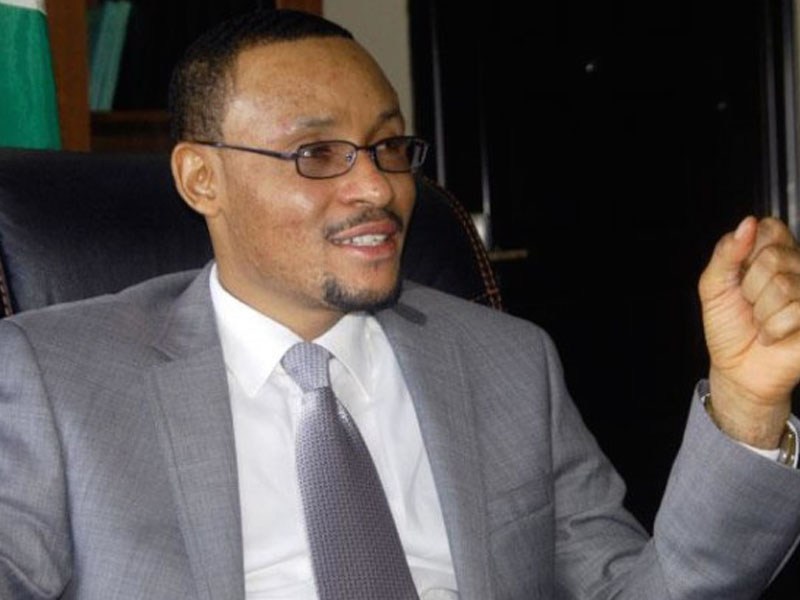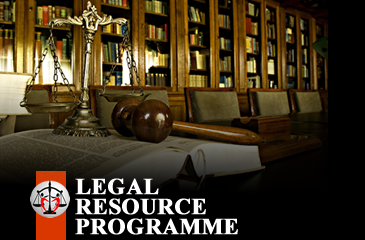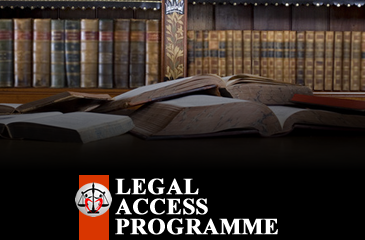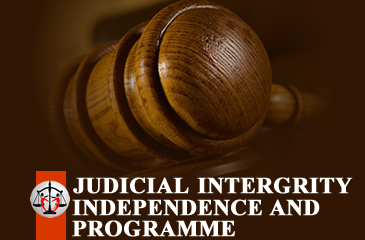RECENT ARTICLES
Judge Transfers and their Adverse Impacts on Justice Delivery
This is a report of a study conducted by Access to Justice of two courts in Nigeria, namely: the Federal High Court and the National Industrial Court, to investigate the practice and modes of transferring judges from one judicial division to another and the problems associated with those transfers. Read More
Making Judicial Appointments Reform Work
How the National Judicial Council can Improve Implementation of its Judicial Appointment Guidelines
This publication examines the gaps in the implementation by Judicial Service Commissions of the
Extant Revised National Judicial Council (NJC) Guidelines and Procedural Rules for the Appointment of Judicial Officers of all Superior Courts of Record in Nigeria and canvasses reforms that would help bridge those gaps and improve the procedures for the appointment of judicial officers in Nigeria.
Read More
Model Guidelines And Procedural Rules On Judicial Appointment And Discipline For Lower Courts
Access to Justice has maintained a keen, abiding interest in reforming procedures of judicial appointment and discipline in Nigeria given the very important role these processes play in building the Judiciary’s strength and character.
In recent years, substantial reforms have been made to the systems for the appointment and discipline of judicial officers of the superior courts. However, these reforms are yet to be replicated by the judicial service commissions/committees as the inferior courts of record do not possess the structured framework and systems for accountability which exist for the appointment and discipline of the judicial officers of superior courts. Read More
How the National Judicial Council Can Improve Enforcement of its Judicial Appointment Guidelines1 (Part 1)
“The quality of justice depends more on the quality of the men who administer the law than on the content of the law they administer. Unless those appointed to the bench are competent and upright and free to judge without fear or favor, a judicial system, however sound its structure may be on paper, is bound to perform poorly in practice” Schwartz
Introduction
On the 3rd of November 2014, the NJC made new rules governing the process for appointing judges of superior courts of Nigeria titled: The Extant Revised NJC Guidelines & Procedural Rules for The Appointment of Judicial Officers of All Superior Courts of Record in Nigeria (hereafter “The Guidelines”). The Guidelines are made up of six Rules.
Read More
Group to EFCC: Don’t be a Political Tool
A human rights group, the Access to Justice (A2Justice), has urged the Economic and Financial Crimes Commission (EFCC) to resist being used as a political tool. It said deploying the agency as a tool against political opponents would further erode its integrity.. Read More
How to Overhaul SARS, by Groups
Two groups, the Access to Justice (A2Justice) and the Network on Police Reform in Nigeria (NOPRIN), have faulted the measures taken by the Inspector-General of Police Ibrahim Idris to overhaul the Special Anti-Robbery Squad (SARS). They said the reform measures appeared to be a kneejerk reaction, which they described as “cosmetic”. Read More
Otteh: Blame Judiciary, not FG for Disobedience to Court Order
Mr. Joseph Otteh is the Executive Director, Access to Justice. In this interview with JOHN CHIKEZIE, he speaks on the flagrant disobedience to court orders by the President Muhammadu Buhari-led Federal Government, Imo NBA protest against police brutality, 2019 elections, vote-buying and sundry issues. Read More
The CJN’s Lament On Political Interference With Judicial Appointments Is Fair But The Judiciary Must Take A Greater Share Of The Blame For It.
At the just concluded Lagos State Judiciary’s first Bi-annual Lecture, themed “Judicial Standards, Integrity, Respect and Public Perception: A Comparative Analysis from Independence in 1960 into the Present Millennium”. The Chief Justice of the Federation, Hon. Justice Walter Onnoghen, (ably represented by Justice Olabode Rhodes-Vivour), among other issues, Read More
Government Must Stop this Treacherous, Vile and Shameful Travesty
Charge those who Summarily Killed More than 348 People for murder and not the Victims of the Murderous Campaigns Read More
Background

Anti-Corruption Agencies Must Bring Better Resolve and Consistency to Fighting Judicial Corruption:
Background
Last Friday (February 2, 2018) the Economic and Financial Crimes Commission (EFCC) reported that it had filed criminal charges against the Chairman of the Code of Conduct Tribunal (CCT), Danladi Umar. Read More
Suspension of Abia CJ Unconstitutional, Assault on Independence of Judiciary
A group, Access to Justice, has faulted the suspension of Abia State Chief Judge, Theresa Uzoma.A statment by the group’s director, Joseph Otteh, also condemned the appointment of Justice Obisike Orji as Acting Chief Judge. Read More
Access To Justice Seeks Public Input in Judicial Appointment
Access to Justice has called for public input in judicial appointments, saying such is of high public interest and have significant consequences for the general public.The group said where the judiciary starts off on the wrong foot, it is the public who will bear and suffer the consequences of its errors of judgment, Read More
Access To Justice Immediate Reaction To The Court Of Appeal Judgment In Hon. JUSTICE NGANJUWA V. FRN
“We Beg to Disagree”
“We have just read about the decision of the Lagos Division of the Court of Appeal (read by Hon. Justice Obaseki Adejumo) The summary of the ruling from media reports is that anti-corruption agencies cannot arrest or prosecute any Judge(s) for any offences committed in the discharge of their functions until the National Judicial Council has first “stripped” the Judges of their “judicial standing”. Read More
Court Order Proscribing IPOB is at odds with Basic Tenets of Justice and Fairness
On Wednesday, 20th September, 2017, acting Chief Judge of the Federal High Court, Hon. Justice Abdul Kafarati granted an ex-parte declaration that the activities of the group Indigenous People of Biafra (IPOB) Read More
FGN usurping powers, functions of the Nigerian judiciary- ACCESS TO JUSTICE
A declaration was on Thursday made by a radical human rights organisation, Access to Justice, that what the Federal Government of Nigeria (FGN) is currently doing, is to usurp the powers and functions of the judiciary in the country. Read More
To Mitigate Trial Delays, The Judiciary Must Urgently Address Its Own Role In Causing Them
From Monday, November 20 to Friday, November 24 2017, Nigerian Judges had their bi-annual Judges Conference in the Federal Capital Territory, Abuja. These Conferences have become institutionalized, and bring together a cross-section of superior court Judges and Justices of Appellate courts in a week-long programme of activities. Read More









